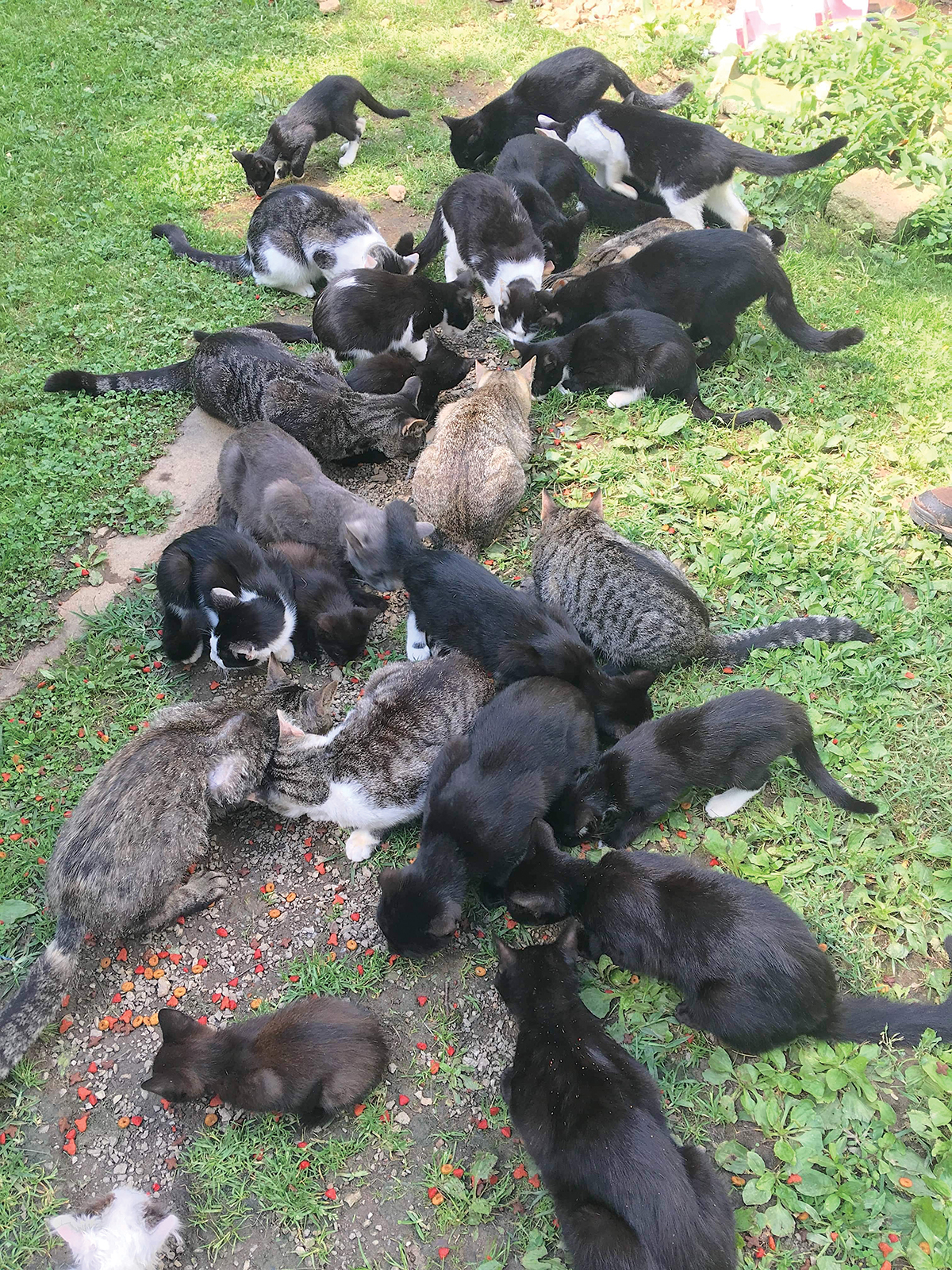By Emma Castleberry
Community cats—feral or unsocialized cats living without owners or a formal home—are a reality across the world. Like all cats who live outdoors, these animals face many threats including vehicles, predatory animals, illness and even starvation. Furthermore, they breed rapidly, expanding the number of community cats that live in an area.

Lend Us Your Ear feeds large colonies of cats that need monthly support
Advocates throughout our region are working to slow the growth of this endangered cat community through a practice called Trap-Neuter-Return, or TNR (also known as Trap-Neuter-Release). In this management method, feral cats are caught in humane traps, spayed or neutered and vaccinated, and then returned to the area where they were first caught. “TNR works,” says Susan Kumpf, executive director of Lend Us Your Ear, a Haywood County nonprofit that does TNR. “It reduces the number of free-roaming cats by stopping unplanned litters; it protects cats and humans from rabies; it prevents serious injuries by reducing territorial fighting of roaming males, which are no longer drawn to areas with in-heat females and no longer driven to cross dangerous roads and lawns ‘owned’ by other cats or intolerant humans. TNR even saves your tax dollars by keeping your county shelter cat intakes lower than otherwise would be possible.”
TNR is much easier in our region thanks to the ASPCA Spay/Neuter Alliance (ASNA), which offers low-cost and free spay/neuter services to the communities of Western North Carolina. Both LUYE and Sister Kitten Animal Rescue (SKAR), another TNR-focused organization based in Maggie Valley, use the ASNA clinic during TNR operations. It’s usually community cat caregivers, or feeders, who sound the alarm about the need for TNR. Some of these folks even request for the cats to be removed instead of returned because they’ve seen how rapidly the communities can grow—it’s not uncommon for feeders to have as many as 30 cats that appear at their door for meals.

If the ear’s been tipped, the cat’s been fixed!
Unfortunately, these cats aren’t adoptable into typical home situations. They can be used as working cats at farms, barns and businesses, but there are limited opportunities for this. Feral cats also tend to get upper respiratory infections and herpes flare-ups from the stress of confinement when they are left in a shelter for too long. Furthermore, even the most progressive shelters don’t have infinite time and resources, so often these cats are euthanized.
“There aren’t enough places to rehome them, so the best line of defense is to keep them where they are and work with someone like us to trap those cats, get them fixed and put them back where they came from,” says Eric Phelps, executive director and founder Sister Kitten Animal Rescue (SKAR).
The ultimate goal of TNR is to avoid euthanizing feral cats that can’t be socialized, instead allowing them to live out their lives in the community without reproducing. But this work requires money and manpower, both of which are in relatively short supply. Find ways you can support community cats in Western North Carolina on the preceding page.
To learn more, visit LUYEar.org, SisterKitten.org and ASPCA.org/aspca-spay-neuter-alliance.






